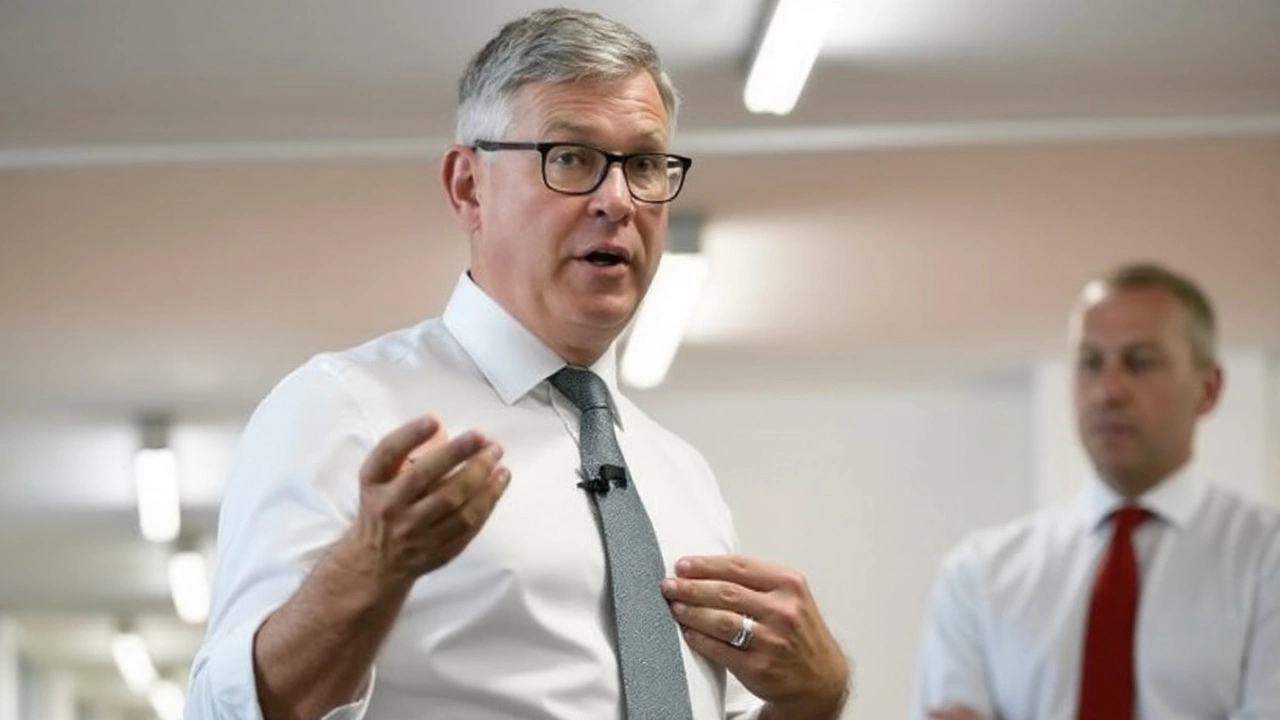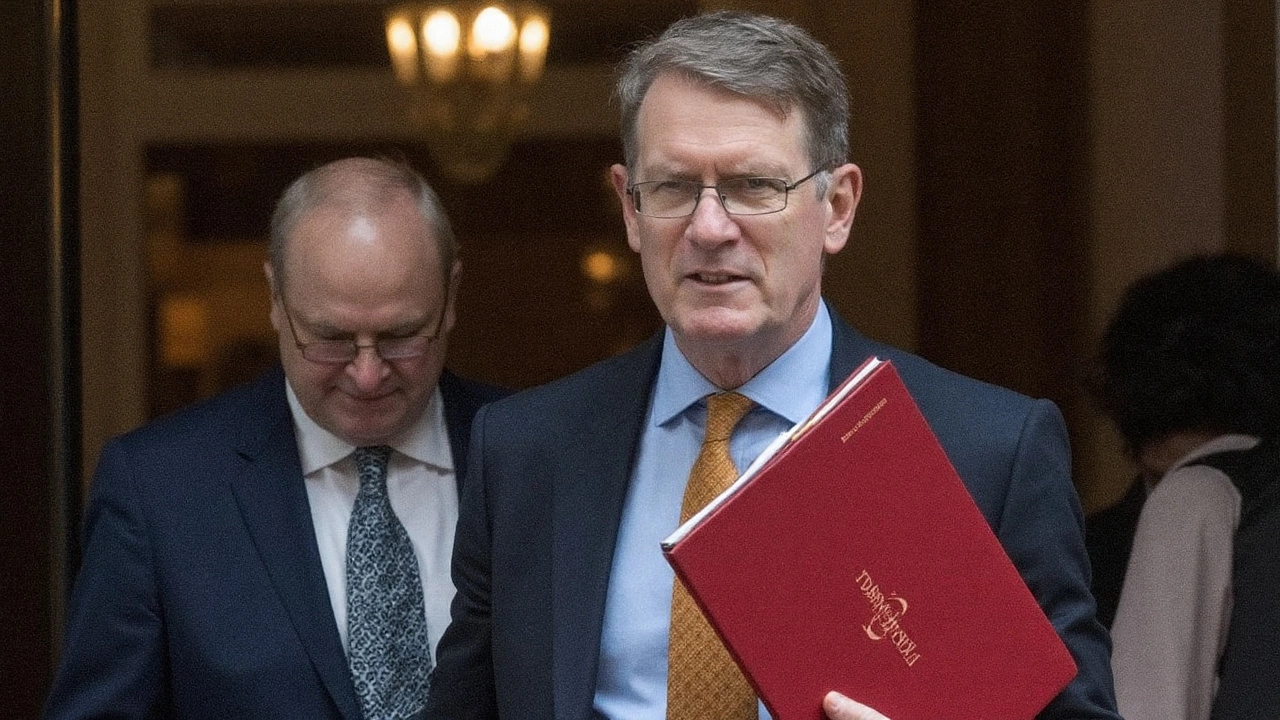
What changed, and why it happened
Keir Starmer has pulled the biggest lever available to a prime minister: a sweeping reset of his top team. The Keir Starmer reshuffle landed within hours of Angela Rayner’s resignation after an inquiry found she breached the ministerial code over a stamp duty underpayment. The shake-up reached across the cabinet, tore through the Home Office, and sent shockwaves through Labour’s internal ranks.
Rayner stepped down as deputy prime minister, housing secretary, and deputy leader of the Labour Party after the independent standards adviser, Sir Laurie Magnus, ruled she broke the code. The case centered on a flat in Hove, East Sussex, bought in May, where she underpaid around £40,000 in stamp duty. She had paid the standard rate on advice that it was her only home, because the family home in Ashton-under-Lyne was held in trust for her disabled son. Later, officials concluded the higher second-home rate applied. Once Magnus’s review landed, Rayner quit.
For Starmer, Rayner’s exit left a hole in three places at once and threatened weeks of drift. Instead, he moved fast. The headline decisions were immediate: a new deputy prime minister, a new foreign secretary, and a fresh structure for the government’s economic agenda. The Home Office, where public frustration has been building for years, saw the most dramatic clear-out.
David Lammy, until now foreign secretary, is the new justice secretary and deputy prime minister. That’s more than a sideways shuffle. Starmer had repeatedly signalled Lammy would stay at the Foreign Office for the full parliament, and Lammy had been busy on the world stage, meeting senior figures in Washington. Now he inherits prisons in crisis, court backlogs, and the politically sensitive job of keeping the UK aligned with its international legal obligations. As deputy PM, he becomes Starmer’s stand-in and chief fixer across Whitehall.
Yvette Cooper leaves the Home Office to run the Foreign Office. Cooper brings a forensic style and a reputation for knowing her brief line by line. Her task is to steady the UK’s voice abroad and manage a crowded agenda: relations with allies, global security, trade diplomacy, and humanitarian flashpoints. The move also resets the Home Office, where policy delivery on migration, borders, and policing has been under intense pressure.
Pat McFadden gets a beefed-up role driving growth. His new “super-charged” department pulls in the Department for Work and Pensions (DWP) and the skills brief from Education. It looks technical, but it matters. It puts jobs, training, welfare-to-work, and productivity tools in one place. It also trims Education Secretary Bridget Phillipson’s remit and means McFadden replaces Liz Kendall at Work and Pensions. For a prime minister who built his case on competence, this is a bet on tighter control over the economy’s supply side.
Several ministers were shown the door. Ian Murray is out as Scotland Secretary. Lucy Powell loses the Leader of the Commons job. Liz Kendall and Sir Alan Campbell were moved after what insiders describe as botched welfare reforms. The message is blunt: if the big dossiers wobble, jobs change.
Some posts stay put for stability. Chancellor Rachel Reeves remains, with No 10 stressing continuity to calm markets. Ed Miliband holds onto the Net Zero brief, a sign Starmer is not ditching his green agenda to please internal critics. The balance Starmer wants is clear: steady hands on the economy and climate, fresh faces where delivery has struggled.
The churn runs deep into junior ranks. These are the people who actually push policy through departments, so the changes matter:
- Anna Turley becomes minister of state in the Cabinet Office and takes over as Labour Party chair, replacing Ellie Reeves.
- Ellie Reeves moves to solicitor general. Lucy Rigby heads to the Treasury as economic secretary.
- Alex Norris is now minister of state at the Home Office, part of the reset on borders and policing.
- Sir Chris Bryant shifts to minister of state at the Department for Business and Trade, losing his joint science and culture role.
- Luke Pollard becomes minister of state at Defence.
- Georgia Gould moves from the Cabinet Office to minister of state at Education, joining the team reshaping skills policy.
Downing Street denies this is a government in crisis. Darren Jones, the chief secretary to the prime minister, said a reshuffle was already pencilled in for later, and Rayner’s resignation simply accelerated the timing. Even if you accept that, the scale is striking. This is a reboot forced by events—and used by Starmer to rewire the machine.

The stakes: ethics, delivery, and the road ahead
Rayner’s case is both technical and political. Stamp duty has a higher rate for second homes—usually a 3% surcharge—which can mean tens of thousands of pounds on top of the bill. People lean on legal advice, but liability sits with the buyer. The standards adviser’s job is to test whether ministers meet the code’s bar for honesty, openness, and accountability. Once the breach was confirmed, her position was hard to save. She left quickly, which contains the immediate damage but leaves Labour to fill a huge gap in party leadership and government.
Starmer’s team now has to manage two fronts at once: ethics and delivery. On ethics, the aim is simple—no repeat scandals. On delivery, the Home Office and the justice system are the pressure points. The public wants visible results on crime, borders, and courts. Those are long, grinding fixes, not overnight wins.
Lammy’s move to Justice puts a high-profile communicator in charge of a system that has chewed up ministers before him. Prisons are overcrowded. Court backlogs delay trials and victims’ justice. Legal aid is stretched. On top of that sit international commitments that often become domestic fights. As deputy prime minister, Lammy will also chair cross-government meetings and step in for Starmer when needed. His performance will shape the government’s sense of grip.
Cooper’s shift to the Foreign Office will feel natural to Labour MPs who rate her attention to detail. Foreign policy right now is about trade-offs: economic ties, security cooperation, and humanitarian crises often collide. A foreign secretary has to manage alliances while keeping space for UK interests. Expect a lawyerly, disciplined approach and fewer off-the-cuff surprises.
The reorganisation around McFadden signals something bigger: the centre of government wants firmer hands on the levers of growth. By combining DWP and skills in one hub, Starmer is trying to align training with the jobs the economy actually needs, and to get people who are out of work into roles faster. It also means welfare reform stays in the frame, but with a sharper focus on productivity rather than only savings.
There are risks. Big Whitehall rewrites are slow and costly. They distract senior officials. They need new laws and months of HR work. Success usually hinges on whether ministers agree on the mission and pull in the same direction. If they do, the reward can be a cleaner line of sight from No 10 to results. If they don’t, you get turf wars.
Keeping Rachel Reeves at the Treasury is meant to tell markets that nothing rash is coming. Investors care less about who runs which department than whether the fiscal rules still hold and whether growth plans look credible. Reeves staying reduces the chance of jittery Mondays in the bond market. Miliband staying at Net Zero says the long-term energy and climate push remains a core plank, not a fair-weather policy.
Inside the Commons, the changes are just as sharp. Losing Lucy Powell as Leader of the House and moving the chief whip, Sir Alan Campbell, suggest Starmer wants tighter discipline and a calmer legislative timetable. Getting bills through, on time, with minimal fuss, is how governments show control. When the whips and the Leader’s office are misaligned, the schedule slips and rows spill into public view.
Scotland will watch Ian Murray’s exit closely. The Scotland Secretary is a political bridge as much as a policy job. With pressure from the SNP and ongoing debates about devolved powers and funding, who fills that post matters for tone as much as substance. Expect a replacement who can travel constantly, read polling fast, and pick their battles.
The vacuum left by Rayner inside the party is significant. As deputy leader, she offered reach into the movement and credibility with activists. She was also a key campaigner outside London. Labour’s rulebook will guide the process for filling that role, but any contest will expose tensions between the party’s left, centre-left, and pragmatists. Starmer needs a deputy who can defend hard choices without losing the base.
The Home Office, the epicentre of this reset, has to grapple with three things at once: border security, legal migration for skills the economy needs, and public confidence in policing. Ministers know the score—fail here, and it colours everything else. Alex Norris’s appointment as minister of state is one of several moves meant to bring fresher management to a department that has worn down many teams before.
On delivery, the government will be judged fast. Voters want cleaner streets, fewer delays in court, and a sense that scarce public money is not being wasted. That is why Justice and the Home Office are now stocked with senior figures and why McFadden’s new brief is all about skills and work as much as spreadsheets.
Rayner’s resignation also puts the ministerial code back in the spotlight. In practical terms, it’s a set of rules about honesty, conflicts of interest, use of public resources, and disclosure. In political terms, it’s the government’s insurance policy with the public. When it’s enforced, ministers go when they fall short. When it’s ignored, trust collapses and scandals define the narrative. Starmer is betting that strict enforcement buys him the authority to make tough calls elsewhere.
What should we expect next? A new Scotland Secretary and a new Leader of the House will confirm whether this is a full reset or a first wave. Watch for any tweaks to the Treasury ministerial team around Lucy Rigby’s arrival as economic secretary, which could hint at how Reeves plans to sell growth. And keep an eye on how quickly the growth super-department takes shape. If machinery changes slide, they tend to swallow political time and sap momentum.
Foreign policy will test Cooper early. She will have to juggle alliance management, sanctions strategy, and trade talks while keeping domestic audiences on side. Her early calls and first travel schedule will tell you what she thinks is most urgent. If she prioritises European ties and security coordination, that will signal a push for practical wins over grand speeches.
Lammy will face hard choices at Justice from day one. Emergency capacity in prisons, digital upgrades for courts, and the pace of legal aid reforms all cost money and time. He will need to show quick wins—cutting a backlog here, improving victim support there—while planning longer-term fixes that will outlast one news cycle. His dual role as deputy PM gives him clout, but also splits his time. That trade-off can either speed decisions or blur focus.
The politics of welfare will not go away. With Kendall moved and “botched reforms” cited by insiders, McFadden’s new structure is meant to get a grip. Expect tighter links between training programs and sectors that are recruiting, faster assessments for those who can work, and more support for those who cannot. If the data shows movement—more people into stable jobs, fewer long waits—Starmer will claim progress. If not, the opposition will have an easy target.
The bottom line is that this reshuffle is about control—of the narrative, the agenda, and the machinery. Rayner’s departure forced the timing, but Starmer has used the moment to put allies where he wants them and to try to fix the departments that keep governments up at night. The test now shifts from who sits where to what they deliver and how quickly the public notices.